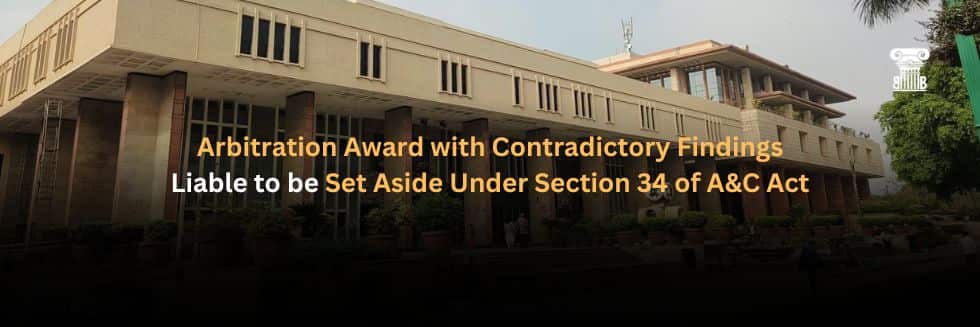The Delhi High Court on Wednesday, have clarified its stance on the conundrum which prevails in deciding the competent court to hear the plea for the appointment of arbitrator when the seat of the arbitration is not specified by the parties. The Court held that when the parties have not agreed on the seat of arbitration, the court competent to entertain an application under Section 11 of the Arbitration and Conciliation Act is the one defined in Section 2(1)(e) of the Act read with Sections 16 to 20 of the Code of Civil Procedure.
The respondents in the said petition have challenged the jurisdiction of the Delhi High Court, in absentia of any seat of arbitration being decided. Furthermore, no course of action also arose in Delhi. It was informed to the Courts that the agreement was drawn at Ranchi; the agreement was signed at Lucknow and the place of performance/execution of the agreement was Patna, Bihar.
As per the Arbitration Agreement, the parties were required to approach the “Court of proper jurisdiction” for the invocation of the sole arbitrator. However, without any evidence, the petitioner emphasized that the Delhi High Court has the exclusive jurisdiction to decide the petition.
After having heard the submissions, the Court finally concluded that in terms of Section 20, parties had the autonomy to choose a “neutral seat of arbitration” i.e. where no part of the cause of action has arisen and this place may not otherwise have jurisdiction under Sections 16 to 21 of Code of Civil Procedure.
Once the seat is determined, the court of that place would have the exclusive jurisdiction to regulate the arbitration proceedings arising out of the agreement between the parties, it added.
However, when the parties have not determined the seat of arbitration, the seat of arbitration shall be determined by the Arbitral Tribunal under Section 20(2) of the Arbitration and Conciliation Act, the Court further stated.
Applying the above principles, the Court concluded that in the present case, since the arbitration agreement did not stipulate any seat of arbitration, the courts in Delhi lacked territorial jurisdiction to hear the petition.
(This news has been written and submitted by Ms. Aarushi Kapoor during her course of internship at B&B Associates LLP. Ms. Aarushi is a third-year law student at Hidayatullah National Law University, Naya Raipur, Chhattisgarh.)






